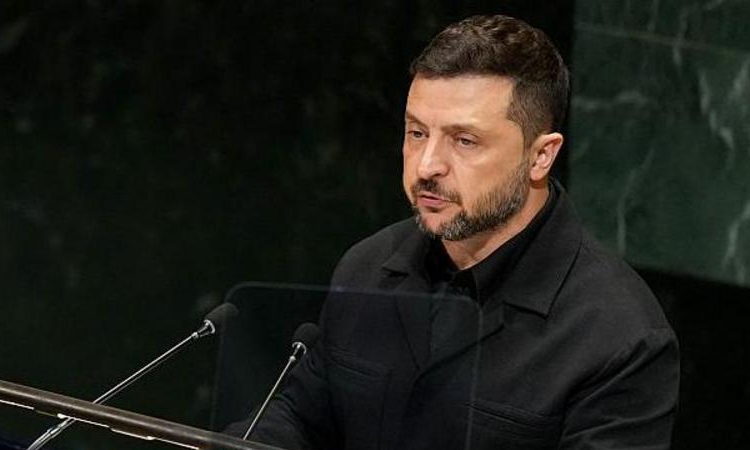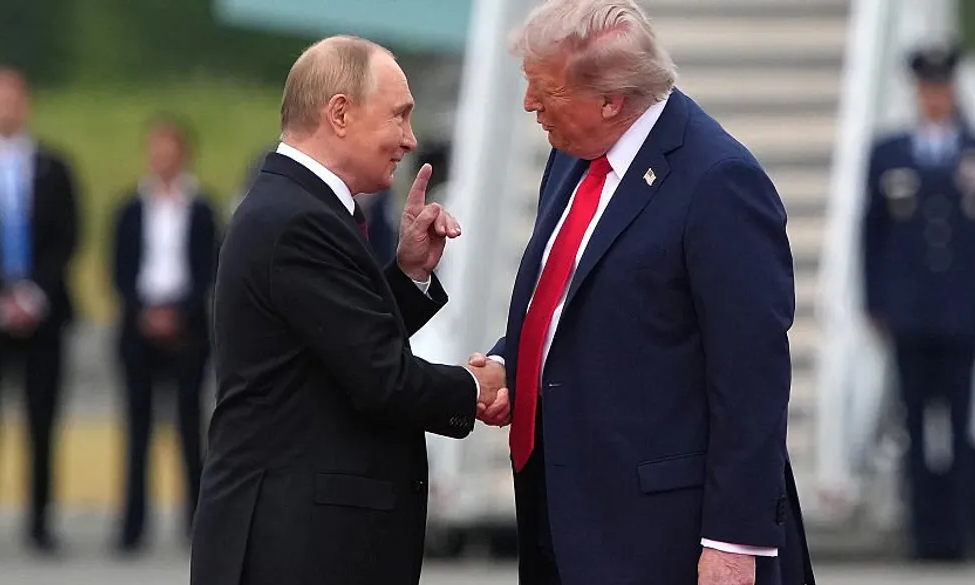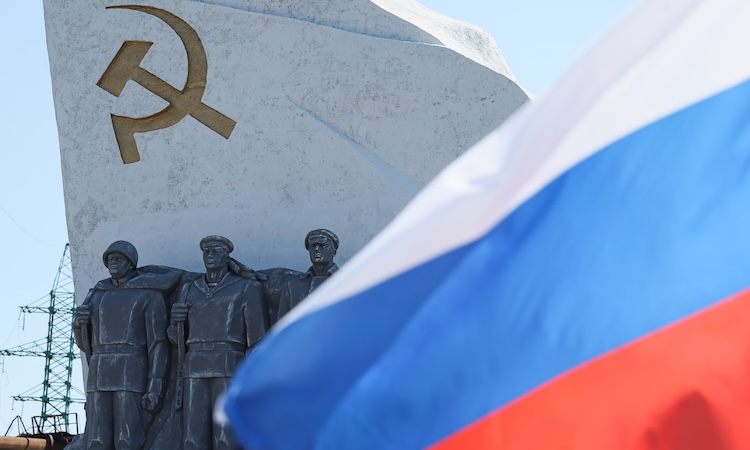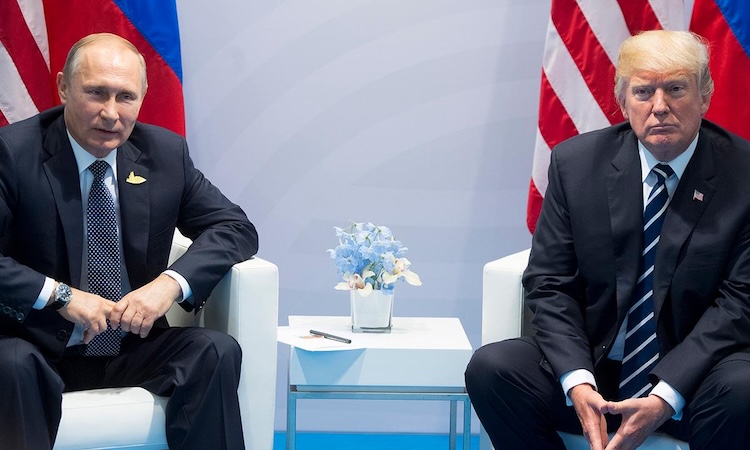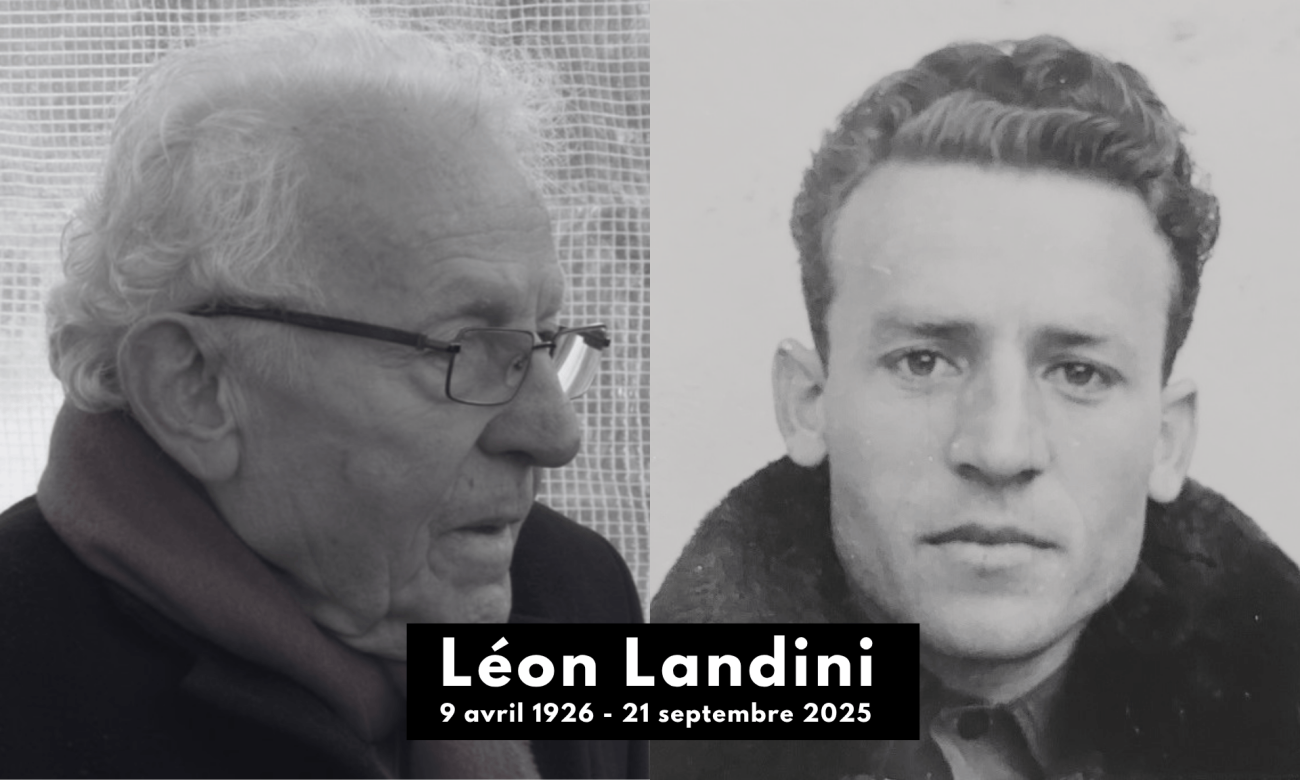With Soledar fallen, Bakhmut surrounded and the liberation of the Donbass proceeding apace, the imperialist disaster on the military front in Ukraine is now translating into an extraordinary descent into faction-fighting on the political front.
Attempts by CIA chief William Burns to bang heads together in Kiev and concentrate minds on implementing the imperialist agenda are only serving to expose the real nature of the proxy war against Russia, a war which Nato cannot win. And the more vigorously the puppet-master tugs on the strings, the more visible those strings become.
Even by Ukrainian standards, the speed, scale and depth of the domestic purge under way at the highest levels of the Kiev power structure are breathtaking.
The Guardian recently reported: “Fifteen senior officials have left their posts since Saturday, six of whom have had corruption allegations levelled at them by journalists and Ukraine’s anti-corruption authorities. The wave of changes started on Saturday when Ukraine’s deputy minister of infrastructure, Vasyl Lozinsky, was detained by anti-corruption investigators and dismissed from his post. He was accused by prosecutors of inflating the price of winter equipment, including generators, and allegedly syphoning off $400,000. Investigators also found $38,000 in cash in his office.”
The article went on to name other very senior officials who have been dismissed or resigned in corruption scandals. They include Kyrylo Tymoshenko (deputy head of Ukraine’s presidential administration), Pavlo Halimon (deputy head of Zelensky’s governing party) and Oleksiy Symonenko (deputy prosecutor general). (Zelensky ramps up anti-corruption drive as 15 Ukrainian officials exit by Isobel Koshiw, The Guardian, 24 January 2023)
Most intriguing of all the cases listed by the Guardian, though, is that of the deputy minister of defence, Vyacheslav Shapovalov.
Military intelligence spooks versus SBU fascists?
Whilst the Guardian is content to row in with the official line, that this is simply a belated effort by puppet president Volodymyr Zelensky to deliver on his campaign promise of ‘zero tolerance’ towards corruption (as you do, in the middle of a full-scale war), it soon becomes apparent that the charges and counter-charges of corruption in high office are being weaponised in the playing out of a complex power struggle, a high-stakes game with no line drawn even at assassination and murder.
In his role as deputy minister of defence, in charge of logistics, Vyacheslav Shapovalov had oversight over army food supplies. Amid allegations of price gouging, with food prices to the soldiers more expensive than food prices in the supermarket, he resigned his post, saying he was innocent but wanted to avoid destabilising the army.
Not content with this, anti-corruption campaigners criticised the defence minister himself (Oleksiy Reznikov) for not sacking his deputy in the first place, to which the defence minister retaliated by claiming that the price gouging allegations were an ‘information attack’ on the ministry and ordered Ukraine’s security services to investigate who leaked the contracts.
The defence ministry, thus under attack on the logistics wing, is also under threat in its military intelligence wing, headed by Kyrylo Budanov. This is the point at which mudslinging about price gouging and ministerial freebies suddenly lurches into a much scarier place, a place where accusations of greed give way to accusations of assassination and treachery.
And at the bottom of it all is the rising panic of the Kiev junta as the harsh reality of military defeat sinks in, with the knives coming out as every faction blames every other faction for the disastrous failure of the fascist junta and its imperialist backers.
Budanov not only directly accused the interior ministry’s SBU goons of killing one of his most important agents, but also revealed that the agent in question was directly involved in peace talks with Russia. In a remarkably candid interview on Radio Free Europe, Budanov claimed that the SBU killed Denys Kiryeyev, a Ukrainian banker who served as a crucial diplomatic conduit and negotiator in the period preceding Russia’s special military operation.
“Budanov confirmed that Kiryeyev had participated in high-level talks with Russian officials held in Belarus just four days after the invasion, and he said that the day before his death Kiryeyev was slated to travel by train again to Belarus for more talks – at Budanov’s directive.
“‘What was the purpose? I sent him there. And the first time and the second time, he had to get on the train right after he was supposed to visit the SBU,’ Budanov said. ‘The main task we set for him was to prolong the [negotiating] process in order to buy time. Because Mr Kiryeyev personally knew two people from the negotiation process who represented the Russian side.’” (Ukraine’s SBU responsible for killing of banker who was conduit for Russian intelligence, says intel chief by Vlasta Lazur, Radio Free Europe, 23 January 2023)
CIA micromanagement fails to end chaos in Kiev
With civil war breaking out on the home front, reflecting the defeats on the front line, it seems that US imperialism is getting twitchy, feeling the need to reinforce its control of the situation.
Vladimir Rogov, chair of the civil society group We Are Together With Russia, told the Tass news agency that the recent visit paid to Kiev by CIA chief William Burns was to make sure that the right people got parachuted into Ukrainian government agencies. Rogov suggested that one of the goals was to make sure Artyom Sytnik got the position of director at the Ukrainian national anti-corruption bureau.
“The next few days will show whether he will give the Americans the positions they want. Burns came with concrete demands: Appoint Atyom Sytnik as director of the NACB, reshuffle staff at the security service of Ukraine, the interior ministry, and lots of other agencies where Americans should gain a stronger foothold.”
Rogov linked Burns’s visit to the statement by Kyrylo Budanov accusing top staff at the security service, also known as SBU, of assassinating the directorate’s employee Denys Kiryeyev.
“That the standoff between the intelligence directorate and the security service – to be more exact, between the intelligence directorate and Zelensky’s people – spilled over into the public domain is related precisely to that. Budanov is a person that’s fully integrated in the Anglo-Saxon military community, starting from his education and ending with how he handles the missions, and he’s one of the most efficient ones.” (Politician says CIA chief went to Kiev to seek certain appointments at Ukraine’s agencies, Tass, 24 January 2023)
This characterisation of Budanov might explain why Radio Free Europe gave him such a generous opportunity to publicly denounce the SBU’s crimes. Could it be that the SBU, widely believed to have been responsible for shutting down many of Zelensky’s political enemies, is now becoming an embarrassment in Washington’s eyes?
Make of all this what you will. What is clear is that the dawning awareness that the Ukronazis are facing humiliating defeat on the military front, no matter how hard European governments are ransacking their dwindling arsenals, is now cruelly exposing all the fault lines opening up under the feet of the Kiev junta.
And if the idea of sending CIA chief William Burns into the bearpit was supposed to be to pour oil on these internecine conflicts, to sort out the good guys from the bad guys and again to impose America’s own choices for leadership slots, there is no sign of this bearing fruit. 2023 is not 2014 and, with morale at rock bottom and the humiliation of military defeat taking its toll, it will be hard to put Humpty together again.
Exposed: the real aim of Nato’s failing Ukraine adventure
US imperialism set out to use Ukraine as a battering ram against Russia, hoping to turn Russians against their chosen leadership and then break Russia into a number of weak and divided statelets under US hegemony. Instead, the Russian people have united behind the Putin-led antifascist resistance, the Ukrainian battering ram is disintegrating under the hammer blows of the Russian army, and it is Ukraine that is falling apart, not Russia.
Now that things are going so badly for the collective west, the pretence that the west’s anti-Russian campaign was all about defending ‘democratic’ Ukraine from ‘autocratic’ Russia is getting harder to sustain. Somebody failed to stuff a sock in the mouth of the former Polish foreign minister Anna Fotyga before she could blab out the true aim of Nato aggression against Russia.
Fotyga, a member of the European parliament (MEP), made no bones about plans for breaking Russia up into a patchwork quilt of ethnic states, plans which she has sought to justify by a grotesque back-to-front parody of the Marxist-Leninist analysis of the right of nations to self-determination.
Bragging about what ‘we’ (that is, the collective west) should do with Russia after its eagerly-anticipated defeat and subjugation, Fotyga elaborated on her deluded fantasy about how ‘we’ should fix things up in the ‘post-Russian space’.
“Taking into account the national and ethnic map of the territories of the Russian Federation, we should discuss the prospects for the creation of free and independent states in the post-Russian space, as well as the prospects for their stability and prosperity.”
And just in case any troublesome people should actually prefer life in an independent modern industrial country to an ethnically pure parochial backwater existence, a constant prey to imperialist bullying, Fotyga, the great liberator, made it clear that the ‘international community’ would feel duty-bound to push on with this balkanising project regardless.
“The international community has the obligation to support the rights of indigenous nations that, due to Russian conquest and colonisation, now exist also within the borders of the Russian Federation. We cannot only focus on the preservation of some indigenous people and not others. The same rights must belong to Khakas, Tuvans, Sakha or Evenks.”
Fotyga sidestepped international law regarding the sovereignty of nations by the simple expedient of denying that Russia is a nation at all, describing it instead as a “terrorist organisation” that therefore “should be dismantled”. She had some severe words for any in the ‘international community’ who might be nursing misgivings about the rectitude of trampling over the rights of a sovereign country.
The “international community”, she lectured, “cannot take a comfortable position on the side lines, waiting for developments, but must undertake a brave initiative that supports re-federalisation of the Russian state, taking into account the history of Russian imperialism, and the respect for the rights and desires of its nations. The victims of Russian imperialism should be able to rebuild their own statehoods, exercise their right to celebrate their heritage, and determine their own future.”
After all the high-flown rhetoric about self-determination, indigenous rights, pure ethnic states and the duty of the international community to save the world from Russian aggression, we finally got to the real point of the whole self-serving rigmarole: “There are no such things as Russian gas, oil, aluminium, coal, uranium, diamonds, grain, forests, gold, etc. All such resources are Tatar, Bashkir, Siberian, Karelian, Oirat, Circassian, Buryat, Sakha, Ural, Kuban, Nogai, etc. [No Russians?!]” (The dissolution of the Russian Federation is far less dangerous than leaving it ruled by criminals by Anna Fotyda, Euractiv, 27 January 2023)
This is no more to say than all the vast natural resources currently enjoyed by Russia would instead be opened up for plunder by monopoly capitalism, depressing the living standards of the whole population and buying another brief respite from imperialism’s crisis of overproduction.
One mineral resource Fotyda failed to include in her shopping list was highlighted in a recent issue of Newsweek: titanium.
“Now, there is a nascent effort underway in the USA and allied nations to identify, develop, and utilise Ukraine’s vast resources of a key metal crucial for the development of the west’s most advanced military technology, which will form the backbone of future deterrence against Russia and China.
“Titanium is a lightweight yet strong metal used extensively in advanced military applications like fighter jets, helicopters, naval ships, tanks, long-range missiles, and many others …
“China produced more than 231,000 tons of titanium sponge last year, according to the US geological survey, making up 57 percent of global output. Next came Japan with 17 percent, and Russia with 13 percent. Kazakhstan produced almost 18,000 tons and Ukraine more than 4,000 tons.”
The USA relies on foreign imports of titanium as it has none stockpiled and has ceased to produce titanium sponge since 2020. As one anonymous congressional staffer delicately put it: “As there are increasing debates throughout the west about why it’s in our interest to keep supporting Ukraine, I think this is one of the arguments that you’re going to start hearing more.” (The battle for Ukraine’s titanium by David Brennan, Newsweek, 28 January 2023)
Fotyda’s crass supermarket dash, in her sick imagination already grabbing Russia’s immense natural wealth, has just one drawback: imperialism has first to get past the Russian government and people and all the other anti-imperialist forces gathering behind the common struggle.
As she graciously conceded: “We should be aware that the dissolution of the Russian Federation might bring certain difficulties and risks, as with any transition period.” You can say that again.

